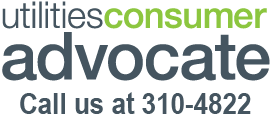Water is a locally managed resource, either by municipalities or water co-operatives. Water sources range from wells, dugouts, reservoirs, or rivers.
Water bills vary from community to community so consumers should contact their local water utility provider for more detailed information. However, most water bills in Alberta have two main components: fixed and variable costs based on how much water is consumed - as measured by a water meter.
It's important for consumers to check their water bills on a regular basis, even if automatic payments have been set-up.
Charges on a water bill
The three main charges that make up a water bill are water, wastewater, and drainage. Most water bills in Alberta have fixed and variable costs.
Fixed costs include:
- Basic monthly water service charges for the cost and maintenance of the water meter, as well as for the costs of reading the meter monthly and issuing the bill.
- Basic monthly wastewater service charges for the wastewater treatment services which is the cost to treat sanitary sewer water.
- Basic monthly drainage service charges covering the cost of maintaining the sanitary sewer and the stormwater system.
- Stormwater charges for collecting the unmetered water (rainwater or melted snow) that flows off a property into the sewer system.
Variable costs include:
- Cost of water (or basic service charge) for the water consumption. It covers the cost of drawing water from the water source, treating, pumping and delivering the water to the home. The average urban household uses 15.1 cubic metres of water each month.
- Wastewater charge for the amount of water consumed by a household each month.
- Sanitary drainage charges for the cost of collecting and treating the wastewater on the amount of water consumed by a household each month.

